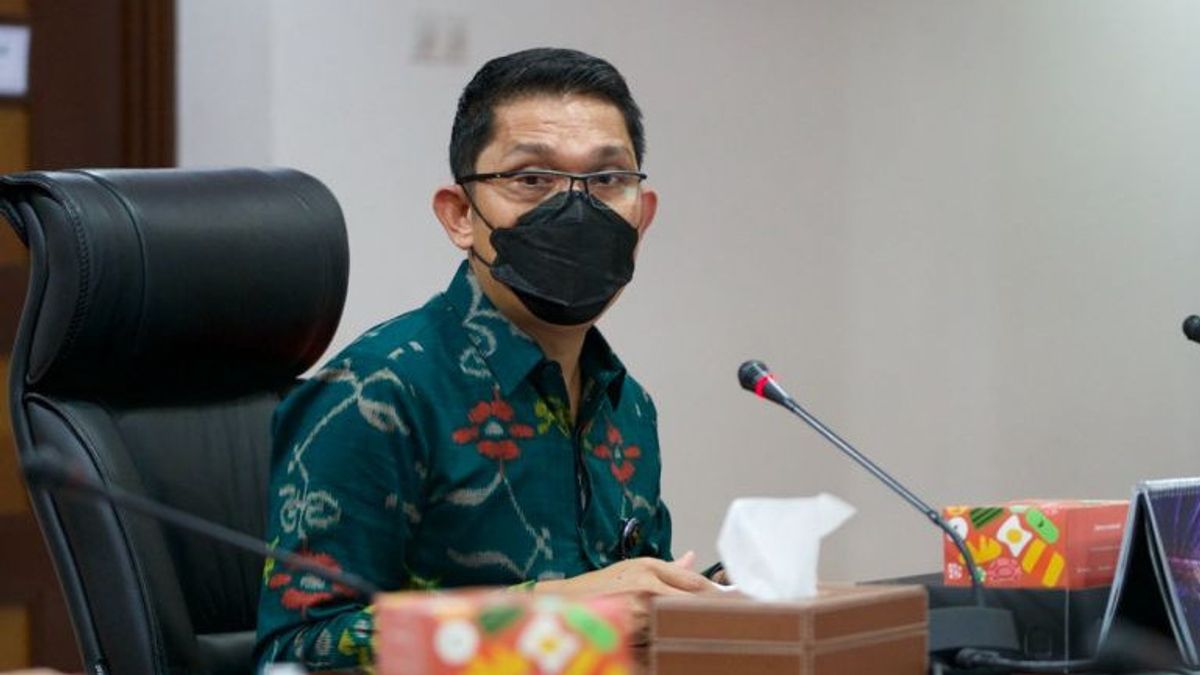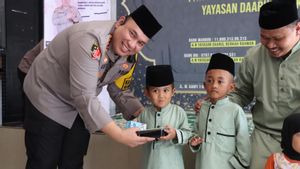JAKARTA - The Presidential Staff Office held a coordination meeting to discuss the polemic of Reog Ponorogo art and herbal medicine which will be proposed as an Intangible Cultural Heritage (WBTB) of Indonesia to UNESCO's Intangable Cultural Heritage (ICH). Humans and Culture, as well as the Ponorogo Regency Government. "The last issue is about losing and winning between reog art and herbal medicine. KSP doesn't want the debate to drag on. So, today we invite you here," said Deputy II KSP Abetnego Tarigan when opening the coordination meeting, as stated in a press release in Jakarta, Thursday, April 21. As is known, this year Indonesia proposed four WBTBs to be encrypted to UNESCO, namely the healthy culture of herbal medicine, Reog Ponorogo, the cultural heritage of tempeh, and traditional weaving. WBTB who are included in the nomination will then be examined by the UNESCO ICH Committee. If the Committee declares that it is suitable for encryption, Indonesia may only submit one of the four proposed WBTBs. Abetnego said that the Ministry of Education and Culture through the Directorate of Cultural Protection should conduct an in-depth study before deciding which WBTB will be encrypted by UNESCO so that in the future it will not create a scene in the community. I hope the determination is based on strategic studies, especially looking at which WBTBs need urgent protection," he said. On that occasion, the Director of Cultural Protection at the Ministry of Education and Culture Irina Dewi Wanti emphasized that the government's decision to prioritize herbal medicine to be brought to UNESCO was not final. However, from the results of a study by the Ministry of Education and Culture, said Irina, the selection of herbal medicine is in accordance with current conditions.
"The world is currently sick, experiencing the COVID19 pandemic. Through herbal medicine culture, Indonesia wants to show that we have knowledge about medicine and knowledge. This is not just a matter of the past, but this culture continues to be used by the community," he explained. Meanwhile, the Regent Ponorogo Sugiri Sancoko, who was present online, said that the pandemic period really hit the fate of reog artists because they could not perform or perform due to restrictions on community activities. The government's decision to prioritize herbal medicine to UNESCO, he said, would actually hurt the feelings of the artists. "If necessary, I turn to the Director so that I can change my decision. We beg you, this is for the sake of the fate of the reog artists not only in Ponorogo, but also in other areas," Heri Sukoco asked the Director of Cultural Protection at the Ministry of Education and Culture Irina Dewi Wanti. UNESCO will only encrypt 50-55 cultural elements each year on UNESCO's ICH list so that each country has the opportunity to nominate one cultural element every 2 years. If you refer to data from the Ministry of Education and Culture, Indonesia has 1,528 cultural elements that have not been registered with UNESCO. If thousands of cultural elements are to be submitted as WBTB to UNESCO, it is estimated that the process will take 3,000 years.
The English, Chinese, Japanese, Arabic, and French versions are automatically generated by the AI. So there may still be inaccuracies in translating, please always see Indonesian as our main language. (system supported by DigitalSiber.id)













